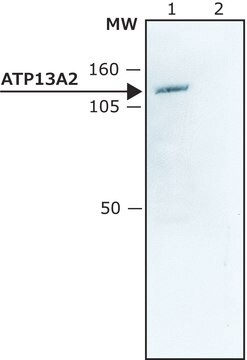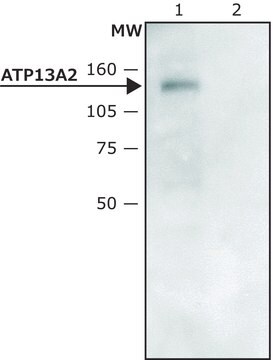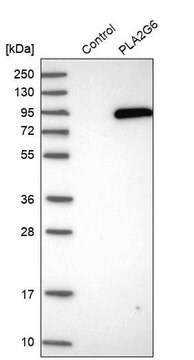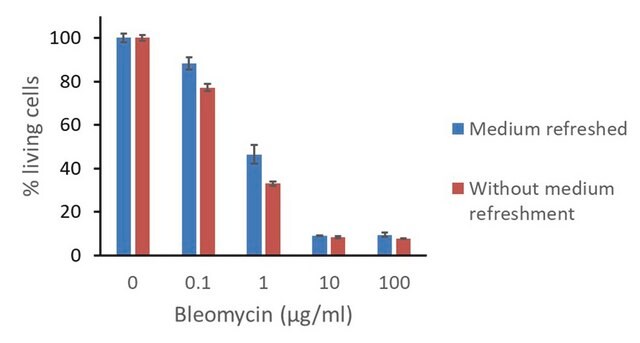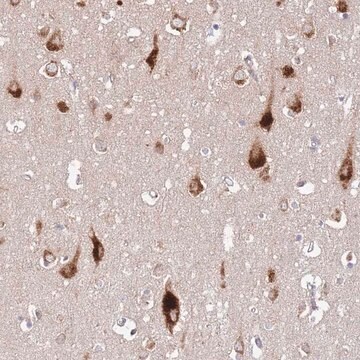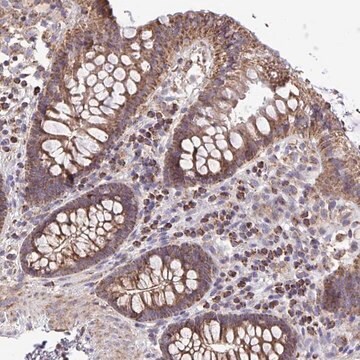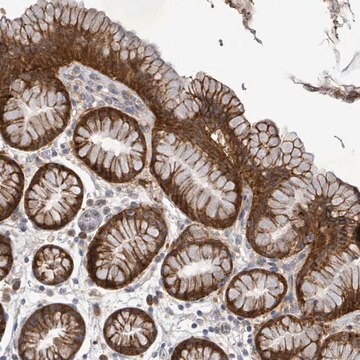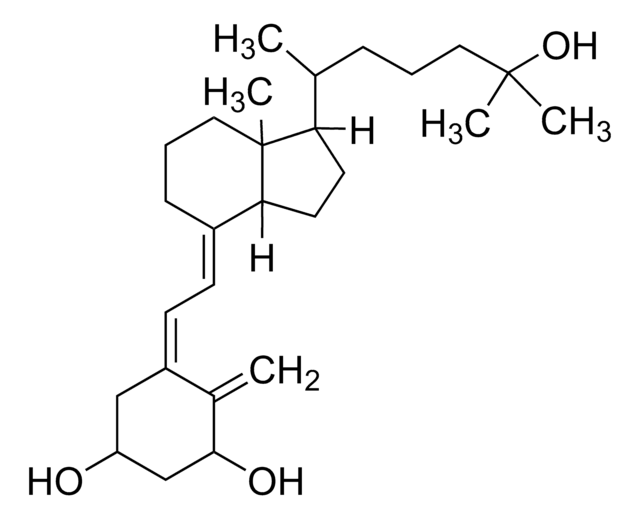A9607
Anti-ATP13A2 antibody produced in rabbit

~1 mg/mL, affinity isolated antibody, buffered aqueous solution
Sinonimo/i:
Anti-ATPase type 13A2, Anti-PARK9
About This Item
Prodotti consigliati
Origine biologica
rabbit
Livello qualitativo
Coniugato
unconjugated
Forma dell’anticorpo
affinity isolated antibody
Tipo di anticorpo
primary antibodies
Clone
polyclonal
Stato
buffered aqueous solution
PM
antigen ~129 kDa
Reattività contro le specie
mouse, human
Convalida avanzata
recombinant expression
Learn more about Antibody Enhanced Validation
Concentrazione
~1 mg/mL
tecniche
western blot: 1-2 μg/mL using mouse brain extract (S1 fraction)
western blot: 2-4 μg/mL using extract of HEk-293T cells expressing human ATP13A2
Condizioni di spedizione
dry ice
Temperatura di conservazione
−20°C
modifica post-traduzionali bersaglio
unmodified
Informazioni sul gene
human ... ATP13A2(23400)
mouse ... Atp13a2(74772)
rat ... Atp13a2(362645)
Descrizione generale
Applicazioni
Azioni biochim/fisiol
Stato fisico
Esclusione di responsabilità
Non trovi il prodotto giusto?
Prova il nostro Motore di ricerca dei prodotti.
Prodotti correlati
Codice della classe di stoccaggio
10 - Combustible liquids
Punto d’infiammabilità (°F)
Not applicable
Punto d’infiammabilità (°C)
Not applicable
Dispositivi di protezione individuale
Eyeshields, Gloves, multi-purpose combination respirator cartridge (US)
Scegli una delle versioni più recenti:
Certificati d'analisi (COA)
Non trovi la versione di tuo interesse?
Se hai bisogno di una versione specifica, puoi cercare il certificato tramite il numero di lotto.
Possiedi già questo prodotto?
I documenti relativi ai prodotti acquistati recentemente sono disponibili nell’Archivio dei documenti.
Il team dei nostri ricercatori vanta grande esperienza in tutte le aree della ricerca quali Life Science, scienza dei materiali, sintesi chimica, cromatografia, discipline analitiche, ecc..
Contatta l'Assistenza Tecnica.